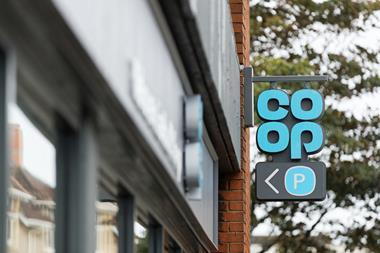The hours and days ahead
What lessons will grocery e-tailers learn from Somerfield's axing of its 24-7 operation? Belinda Gannaway reports
Somerfield's abandonment of online shopping speaks more of the state of its business than the future of grocery e-commerce in the UK. Yet the aftermath of Somerfield's one year foray into home shopping which could cost the company up to £20m leaves a legacy for the rest of the grocery sector and its online aspirations. The main impact may well be to make retailers more cautious about developing a comprehensive depot structure.
Since launching Somerfied Direct in March 1999 rebranded as 24-7 in October Somerfield has been a rarity among the large players in opting for a totally depot based solution to order picking. Nevertheless, despite the spectacular collapse of 24-7 last week, few doubt that in the long term, cost effective large scale fulfilment can only be managed through depots.
And successful depot based home shopping operations will rely on high automation, responsiveness and efficiency to match large volumes.
For Chris Webster, head of supply chain at Cap Gemini Ernst & Young, there is no alternative. He points out that with store picking, the cost of getting the product from the back of the store to the front and back out again in the home delivery van is the same as from the supplier to the store.
"You have to be able to apply the same efficiencies to a situation where you can deliver potentially single items to 20 million addresses. That's a very different systems and organisational challenge," he says.
With the £3.25m acquisition of the London based home shopping service Flanagan's in March 1999, Somerfield gained an experienced team who had a better chance of understanding these issues than most. The Flanagan's business had been running since 1995 and had 10,000 customers around its 30,000 Wandsworth base.
But the problems weren't long coming when five of the management team left in June 1999 to set up Simply Organic, a nationwide internet shopping service based in New Covent Garden Market. It poached a further five team members over the coming months.
While opinions on the 24-7 management vary, the team do undoubtedly have skills which will prove in much demand in the coming years. Dominic Scott-Flanagan, who founded the Flanagan's business, and md Lisa Riley, who joined Somerfield from BHS in October 1998, could prove highly marketable and are unlikely to be at a loose end for long. Somerfield finance director Martin Gatto, who had a dual role as chairman of 24-7, is more likely to stay with Somerfield for the time being.
So what did go wrong at 24-7?
Some suggest that in Flanagan's, Somerfield got less of a prize than it imagined, and even more so after the bulk of the management jumped ship.
But Somerfield itself says the decision to shut 24-7 was a result of the need to concentrate on its bricks and mortar business rather than failings in the home shopping model. It has not ruled out a return to home shopping in the future though that seems unlikely given the group's current predicament.
Chairman John von Spreckelsen said: "The hard fact is that 24-7 has not been growing and represents a significant distraction to management at a time when its focus has to be on the core Somerfield and Kwik Save business."
To say 24-7 had not been growing is something of an understatement. Insiders say it was losing £700,000 a month. Each depot could handle 15,000 orders a week. But customer numbers never got close to that figure.
With upbeat plans for two further fulfilment centres this year and 18 by 2005, one analyst says the figures "always looked fanciful". Somerfield which is facing continued speculation about a financial buyer keen to realise the asset value of the business had neither the brand strength to grow the customer base to create a profitable business nor the money to spend to bolster it. In short, the volumes simply didn't justify the investment and the investment was turned off.
Credit Lyonnais Securities analyst Paul Smiddy comments: "With a weak retail brand that the company can't afford to market aggressively, the public will always turn its nose up."
It's not so much that 24-7 was ahead of its time, but that Somerfield couldn't afford to wait for the idea to come of age. Home shopping is a long-term play, and the 24-7 operation got submerged by the rest of the group's difficulties.
Verdict says grocery shopping online, including digital interactive television, only accounts for one fifth of 1% or £165m. By 2004 the consultancy predicts grocery sales online will be a more substantial £4.96bn or 4.9% of the grocery market.
Mike Godliman of Verdict says retailers should be looking at 2003 or 2004 before they get enough traffic to make a profit.
Some trade commentators question whether von Spreckelsen has ever really been a home shopping convert. Although during his time as Budgens chief executive it launched Budgens Direct, a home shopping service operating in central London, it always seemed to be a case of testing the water for von Spreckelsen. The strategy and direction remained in the hands of other more enthusiastic generals.
Ironically, Budgens Direct is now eying 24-7's customers in south and west London.
But while Budgens and others will be interested in picking up 24-7 customers after Somerfield pulls the plug tomorrow (June 25), the same cannot be said for Somerfield's depots in London and Bristol.
Tesco seems an unlikely buyer as it maintains its commitment to store picking, pointing out that depot based operations in the US are losing out to the mixed clicks and mortar players even though they entered the race late.
Likewise, Sainsbury chief executive Sir Peter Davis only last month reversed the depot only model with a move back to partial store picking. The race is on to gain numbers and "we need to be pragmatic" he says. The largest of the Somerfield depots in Park Royal west London is only a stone's throw away from Sainsbury's centre which claims to be the largest in Europe.
The two London depots probably represent too much of an overlap for Asda's bases in Watford and Croydon with which it aims to tap the London market via a depot based service. The third Somerfield depot in Bristol also has dubious appeal as the city is unlikely to be the second target market for Asda.
But one company that is interested in the former Flanagan's 30,000sq ft Wandsworth depot is Simply Organic. MD Ian Smith said: "Among other potential depot sites, we've had Wandsworth in our gunsights for many months. It was obvious from day one of this business we needed new space. And it was only a matter of time before the 24-7 business closed down."
So going forward, what are the lessons that need to be learnt by the industry from the 24-7 story?
Put simply, a successful e-tailing operation is not about sticking up another conventional store, filling it with goods and enticing customers away from the competition. A successful e-operation needs a whole new way of looking at the business plus it requires time, money and patience.
It's a question of getting the right information technology to link up the different bits of the supply chain as well as the right engineering technology to run a slickly automated fulfilment centre. There is a lot of work being done at the moment and Cap Gemini Ernst & Young's Webster believes a complete solution will be available in a year.
He explains: "The battle is how to get very high service and very high efficiency in a distribution environment. That's something that's not been done before. It's about 19th century service with 21st century technology."
Waitrose, which seems the brand most likely to enter the market in the foreseeable future, is adamant it will not have its hand forced. It has been happily rolling out its Waitrose@work service for the last two years.
For Mark Price, marketing and sales director, it's a case of waiting and watching. He says: "Knowing the right time is the hardest part. You can quantify everything else."
And when it does jump, getting the figures right will mean store based fulfilment, Price says.
The full detail of the 24-7 story will become clearer when the company publishes its full year results next month. Other players will pick over the details with a fine tooth comb. As for the remaining Somerfield business, the dumping of 24-7 has had a negligible impact. The same cannot be said for its 226 staff who face an uncertain future. Simply Organic's Ian Smith says he has been "inundated" with enquiries from former employees.
Some analysts suggest Somerfield may maintain its 90,000 sq ft Park Royal depot as a distribution centre for supplying an expanded London store base. That seems unlikely as attention needs to be turned first to the ailing store portfolio.
While events at 24-7 may create headlines heralding a bumpy road for e-tailers knocking new economy operators is a favourite pastime for many the industry should take into account the ills in the Somerfield business before heeding too many lessons from recent events.
To make home shopping pay, it needs to be big. And big means picking centres.
{{COVER FEATURE }}
Close menu
- Home
- Retail & Wholesale
-
Products & Suppliers
- Back to parent navigation item
- Products & Suppliers
-
Product Categories:
- Back to parent navigation item
- Product Categories:
- Alcoholic drinks
- Bakery
- Cereals & breakfast
- Cheese
- Chicken & poultry
- Chocolate
- Confectionery
- Crisps, nuts & snacks
- Dairy
- Fish
- Fresh produce
- Frozen
- Household
- Meat
- Own Label
- Sauces & condiments
- Seasonal
- Soft drinks
- Vaping
- Vegan & plant-based
- World foods
- Suppliers
- People
- Reports & Data
-
Topics A-Z
- Back to parent navigation item
- Topics A-Z
-
Popular topics:
- Back to parent navigation item
- Popular topics:
- Cost of living crisis
- Crime
- Deposit Return Schemes
- Finance
- Government & Regulation
- Health
- Inflation
- Loyalty
- Marketing
- Mergers & Acquisitions
- New Product Development
- Sourcing
- Supply chain
- Sustainability & environment
- Technology
- Ultra Processed Foods
- Vaping
- A-Z all topics
- Content by type:
- Events
- Ask iA (beta)
- Subscribe now
Sign in to comment on this article
Not logged in before? Register for FREE guest access today.
You will be able to:
- Read more stories
- Receive daily newsletters
- Comment on stories
Advert


















No comments yet